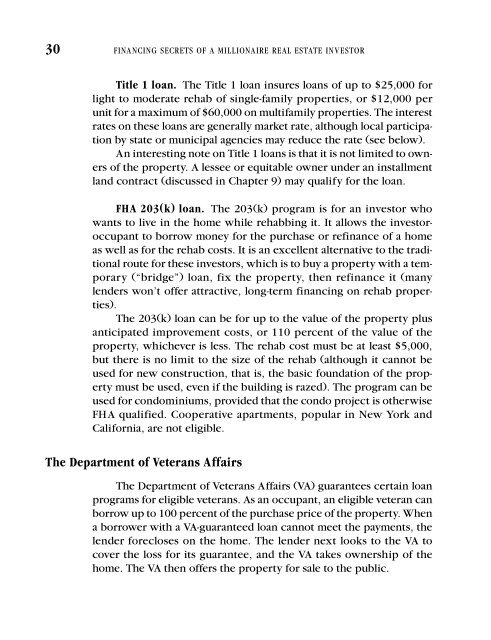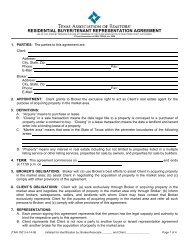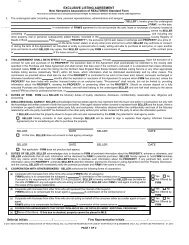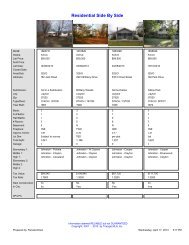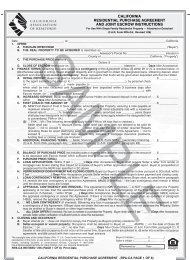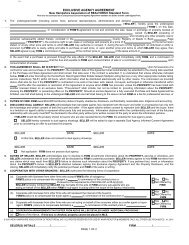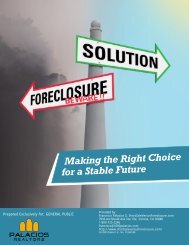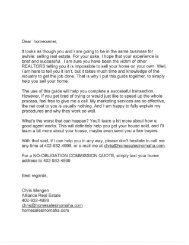financing secrets of a millionaire real estate investor.pdf
financing secrets of a millionaire real estate investor.pdf
financing secrets of a millionaire real estate investor.pdf
You also want an ePaper? Increase the reach of your titles
YUMPU automatically turns print PDFs into web optimized ePapers that Google loves.
30 FINANCING SECRETS OF A MILLIONAIRE REAL ESTATE INVESTOR<br />
Title 1 loan. The Title 1 loan insures loans <strong>of</strong> up to $25,000 for<br />
light to moderate rehab <strong>of</strong> single-family properties, or $12,000 per<br />
unit for a maximum <strong>of</strong> $60,000 on multifamily properties. The interest<br />
rates on these loans are generally market rate, although local participation<br />
by state or municipal agencies may reduce the rate (see below).<br />
An interesting note on Title 1 loans is that it is not limited to owners<br />
<strong>of</strong> the property. A lessee or equitable owner under an installment<br />
land contract (discussed in Chapter 9) may qualify for the loan.<br />
FHA 203(k) loan. The 203(k) program is for an <strong>investor</strong> who<br />
wants to live in the home while rehabbing it. It allows the <strong>investor</strong>occupant<br />
to borrow money for the purchase or refinance <strong>of</strong> a home<br />
as well as for the rehab costs. It is an excellent alternative to the traditional<br />
route for these <strong>investor</strong>s, which is to buy a property with a temporary<br />
(“bridge”) loan, fix the property, then refinance it (many<br />
lenders won’t <strong>of</strong>fer attractive, long-term <strong>financing</strong> on rehab properties).<br />
The 203(k) loan can be for up to the value <strong>of</strong> the property plus<br />
anticipated improvement costs, or 110 percent <strong>of</strong> the value <strong>of</strong> the<br />
property, whichever is less. The rehab cost must be at least $5,000,<br />
but there is no limit to the size <strong>of</strong> the rehab (although it cannot be<br />
used for new construction, that is, the basic foundation <strong>of</strong> the property<br />
must be used, even if the building is razed). The program can be<br />
used for condominiums, provided that the condo project is otherwise<br />
FHA qualified. Cooperative apartments, popular in New York and<br />
California, are not eligible.<br />
The Department <strong>of</strong> Veterans Affairs<br />
The Department <strong>of</strong> Veterans Affairs (VA) guarantees certain loan<br />
programs for eligible veterans. As an occupant, an eligible veteran can<br />
borrow up to 100 percent <strong>of</strong> the purchase price <strong>of</strong> the property. When<br />
a borrower with a VA-guaranteed loan cannot meet the payments, the<br />
lender forecloses on the home. The lender next looks to the VA to<br />
cover the loss for its guarantee, and the VA takes ownership <strong>of</strong> the<br />
home. The VA then <strong>of</strong>fers the property for sale to the public.


